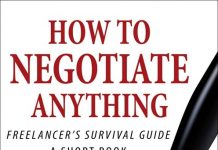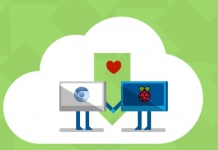
Nate at The Digital Reader has posted a good little recap of the ‘iPads in schools’ debacle that’s been making the news. The short version is that the Los Angeles Unified School District spent a whack of money buying iPads for student use, then had to recall them when the students hacked them to get around the security controls which prevented them from doing anything unauthorized.
I’ve sat on this story for a few days because, as an educator myself, I wasn’t quite sure how I was meant to respond. When I wrote about a similar issue earlier this year—it was laptops, not iPads in that one—I shrugged it off as a failure by those kids in learning that sometimes you just have to suck it up and play by the rules because learning to do that is a part of life. As I wrote then:
“These middle and high school kids are old enough to learn this lesson, and the school-provided computers are an age-appropriate way to teach it. You want to hack stuff? Do it on your home computer. But the school has to install this stuff because otherwise they don’t get the funding to provide you with the shiny toys. So—with all due respect to the younger generation—play nice and don’t be an ass about it. That is a lesson in manners, not a lesson in technology.”
So, what’s different this time around? Well, I think that what I wrote back in July IS true, but I have just spent the week getting an object lesson in an even greater truth: namely, that kids will be kids and that sometimes, we just have to deal with that. I’m the faculty coordinator for our student government, and it was election week. The posters were supposed to be in on Monday, and some of them were not. The speeches were supposed to be in on Tuesday, and some of them were not. One candidate had to have a whole paragraph removed from his because he was promising his fellow students a whole-school trip to the circus and a visit by an ice cream truck if they voted for him.
But the moment which most stands out in my mind was the teacher who came to report to me that some of them had been talking about the votes at lunchtime and there had been some hurt feeling. “But we talked to them about that!” I protested. And our principal, who has been eavesdropping, started to laugh and laugh. “Oh, you’re so cute,” she told me.
I hadn’t been trying to be cute, of course. I’d sat down with the kids three times already and talked to them about this stuff, and it had all gone home in an email to the parents too. But…kids will be kids, you know? Even the best ‘talk’ in the world doesn’t change that. So, what should we be doing here? Should we be recalling thousands of dollars in technology just because kids are curious? Should we be responding with fear and with threats when they try and venture out of the box we prescribe for them?
I think that, like anything else involving kids, there has to be a best practices here that involves reasonable—not draconian—precautions, coupled with a dash of common sense. Sure, give them the Serious Talk first. Explain to them about the funding, which requires that the machines be outfitted a certain way. Encourage them to explore within the parameters you establish, then to go home and explore a little further—with their parents, maybe—on their own equipment and to respect the hard work the school did in starting this dialogue by keeping to the rules when they play on school toys.
A fair percentage of the kids will probably listen. And the ones who don’t? Well, you patiently explain it to them again, because kids will be kids, and sometimes that goes with the territory. For a repeat offender, there can of course be consequences. But perhaps they can focus less on the ‘you’re bad’ aspect and more on the whys behind the rule. What about sending them into the IT room for volunteer shifts, so they can learn that skill too and so that they can begin to appreciate what goes into maintaining the machines? What about workshopping out a code of conduct with them before you give them the tablets in the first place?
The kids in my life are fortunate that the Beloved works in IT, and he and I are both interested enough in technology that we have a healthy enough gadget stash at home for them to play with. They will not need to restrict their exploring to only the areas their schools deem safe. But some kids don’t have any option. The school provides it, or they don’t partake. And the school can’t provide it if they don’t agree to certain standards. That is a lesson we do need teach our kids. But we also need to teach our adults that nobody’s perfect and that kids will sometimes just be kids. It is not realistic to expect that nobody will try to test the boundaries.

































“unauthorized”?? By whom? Why? Was the “unauthorized” reasons vetted well or just picked by some individual with their own agenda?
Not quite half a story.
When Chris Meadows wrote about this (9/26/13), it wasn’t at all clear why this attempt to restrain students with technology failed. We now have a fuller explanation of that from MacWorld. Here is that link again: http://www.macworld.com/article/2051343/whats-behind-the-ipad-hack-at-los-angeles-high-schools-.html
Moral suasion is certainly what we hope will eventually be sufficient and your efforts in that direction are essential. Kids are a work in progress and this is the faith that being a teacher requires. Interestingly, publishers who use DRM apparently don’t believe that we will ever grow up but that’s them.
Then there is the politics of education. The 2004 case of Julie Amero (http://abcnews.go.com/GMA/story?id=6739393&page=1) helps us understand how far some school administrators will go to support the assertion that they are protecting children from the sullying influences of the real world.
So, the implementation of Mobile Device Management (MDM) is essentially an administrative CYA move. They needed to be able to assure parents that the school system was not enabling their children to be approached by predators via Twitter or Facebook or see things on YouTube that they might not be mature enough to handle. Having issued those assurances, the news that students had bypassed the MDM and gotten unfettered access to the internet with school issued equipment left no other option but to keep the iPads at school where the internet is filtered via network equipment.
The technical issues identified in the MacWorld article will probably be addressed and LA students will, once again, be able to take the iPads home.
Like banning books, this is a never-ending story.
Schools can’t be parents and get into trouble when they try. In this case, they were trying to control with software what those kids were doing with their iPads away from school. It’s hardly surprising that failed.
Schools are also fear-driven bureaucracies that try to control too much. From what I’ve heard, YouTube was banned from those iPads. Why? There’s a host of good stuff there including National Geographic and History Channel documentaries. Ah, because there’s also some nasty stuff there too. A parent can monitor for that. A distant school official can’t hence a fear of bad press and the total ban that didn’t work.
It’s a bit hard for both parents and teachers to get kids to show kindness, sympathy and civility when there are cultural influences (i.e. some music and books) that teach the very opposite. Little classroom lectures and show-and-tell times do little against that cultural tidal wave.
In addition, since parents who protest those influences get little support from educators when they are branded as censors by librarians during the annual banned books celebration, I feel little sympathy those educators.
I refer to it as a ‘banned books celebration’ because is less a reminder of the value of a free speech, than it is some people celebrating their ability to force kids to read often trashy or psychologically harmful books despite the protests of parents.
By attacking and slandering those parents, they’re the ones who suppressing not just free speech but the most valuable form of free speech, seditious libel or the right to criticize government. Public schools and libraries are, after all, branches of government. In effect, what banned books week advocates want is a return to that dark era when seditious libel was a crime. For those who wonder, this is one definition:
“Written or spoken words, pictures, signs, or other forms of communication that tend to defame, discredit, criticize, impugn, embarrass, challenge, or question the government, its policies, or its officials.”
Seditious libel isn’t just about criticizing kings. It’s about the right of parents to criticize and embarrass school officials and public librarians for their policies and actions. When someone attacks those parential protests through prominent ‘banned books’ displays on public property, they are persecuting those engaged in seditious libel. And since the essence of censorship is government action to suppress free speech, their actions are censorship while the protests of parents can never be.
One final note. Freedom from being persecuted for seditious libel is so critical to a free society that some consider it a perfect measure of whether a society is free or not. A government that allows itself to be openly criticized is a free society. One that does not is likely to move into other forms of repression too, for example using the IRS to go after individuals and groups who criticize the current administration. Sound familiar?
Keep in mind that ‘government’ doesn’t just mean presidents, courts and legislatures. It also means school officials and public librarians. They can respond to their critics and defend their actions. They have as much right to free speech as anyone. But they cannot attempt to demonize and silence them.
In case you’re wondering, I’ve got a book on this topic buzzing around in my head.
Following up a bit on Frank Lowney’s post above, Fraser Speirs, who has been involved with iPad school deployments for almost as long as there have been iPads, has a nice blog entry with his take on this:
http://speirs.org/blog/2013/10/1/battle-los-angeles.html
He talks about how this is an issue of culture change more than a technological one, and how they got good results by *not* trying to keep everything locked down, but acknowledging that “there was going to have to be some give and take with our iPad content. Yes, we deployed Angry Birds. We deployed several games. Some explicitly educational, others less obviously so. […] You know what the impact was, though? A dramatic drop in petty indiscipline cases. Those boring slack times in school could be filled with something useful or just plain fun. We found that, early on, pupils would just use free time to play games. As the deployment progressed, and the culture changed, pupils started to use the iPad more creatively in those times – either catching up on work, doing personal research or exploring new apps. It’s not uncommon to see kids sitting before school or at lunchtime practicing with an app that they don’t otherwise get much chance to use.”
Overall, he says, “It’s give and take. It can’t be all take by the students or it’s just chaos, but it can’t be all take by the school either.”